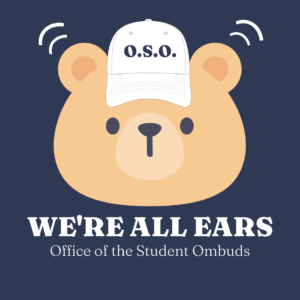Power, Conflict and Friendship

Here at Georgetown, in D.C., the power of relationships is accepted, maybe even held as sacred. But what about the relationships of power in our lives?
It’s not just who you know, it’s how you know them, how you see them, and how they see you. Influence and power are only valuable when they are limited, withheld, and given only sparingly. This is true in the professional sense, how we typically think of it. But it’s also true in our everyday lives, our friendships, our circles, our on-campus jobs, the orgs we’re in, etc. Power is either predetermined by role, or we struggle for it.
So, what do you do when someone else has it over you? What about when that person is a friend, and you used to share power in the relationship, but now they’re in a role when they have more? Or what if you find yourself in a position of power over your friends, and it feels different now, even though you don’t think of them differently?
In undergrad, I wrote for a few of the publications on my campus, but there was one that was easily my favorite – I gave the most time to it, wrote the most articles for it. They gave me free reign to write about whatever I wanted, and they barely edited what I wrote. It was awesome – and I wanted the editor position. Later on in Sophomore year, after I had been writing for them for a while, I got my friend to start writing for them, too. I loved having a buddy in the org, to have someone to share ideas with, and maybe more importantly, to vent with.
But then in Junior year she got the editor position. She knew I wanted it, but she applied too. And when she got it, I was crushed. After that, our friendship wasn’t the same. I felt passed over, resentful, and jealous. l was always trying to regain power in the relationship, calculating the things I did, keeping score. It wasn’t fair to her – it wasn’t even her fault! It wasn’t her choice to get the position, but somehow it still felt like a betrayal, and the friendship faded. There was this power imbalance that didn’t even need to be that big of a deal, but it felt insurmountable to me.
It comes back to this ”how you know who you know” thing. Honestly, my friend was a really good editor. If I could go back, I would have brought it up with her, named the feelings I was feeling, and then moved on and tried to actually learn from her. Power is a two-way thing – it’s given in name through age or experience or role, but it doesn’t carry any weight until it’s either exercised or acknowledged. It’s manipulable in that way.
Since the experience of losing that friendship, I’ve gotten better at being able to navigate those social power dynamics so that they aren’t destructive. In a job after graduating undergrad, when my friend got promoted over me into a role I was sure was mine, I felt a familiar sense of resentment again but didn’t let it build. Instead, I talked to her.
I told her that I valued our friendship and loved working with her, but that I was struggling with her having power over me now. I told her that I wanted to be able to preserve our friendship, even though the dynamic was changing. I was honest about wanting the promotion and being sad I didn’t get it, but that I understood that her new role was separate from our friendship. I also told her that I’m excited to see her grow in the new role and to learn from her.
It went really well. It was a scary conversation to have, to be so vulnerable, but I’m so glad I did it. She was grateful to have the chance to tell me that she was struggling with the transition too and that she didn’t want it to impact our friendship, either. The dynamic between us was still different, but having a conversation and naming those differences took away some of their powers, and we maintained a relationship.
The thing is, power is intangible. It’s real, but it’s also contextual, and there are ways to work with it. Naming the dynamic of power, just saying that it’s impacting the way you’re able to show up in a relationship, can change the weight it carries.
That said, power comes in many forms, and of course it’s also true that many power dynamics are rooted in oppression and structural injustices. To be crystal clear, I don’t want to suggest that these types of power dynamics can be managed or resolved with something as simple as a conversation, or that it is the responsibility of the person with less power to resolve the imbalance. The power dynamics I’m talking about here are informal rather than structural – though, of course, those can coexist.
Conflict is already hard enough, but when it’s due to, or impacted by either informal or formalized power dynamic, the stakes feel higher and the rules feel different. Whether it’s with a friend who got the leadership position you wanted, or it’s in a professor/student dynamic, or if you find yourself promoted over a friend, relationships of power matter. Acknowledging to yourself that the power dynamic is causing tension can be helpful, but if appropriate, it can also be game-changing to call it out with the other person, to name its impact and the way that it’s either fueling or potentially causing the conflict.
This feels daunting though, and at the time, I didn’t know what resources were available to me. I wish I had known about spaces like the Ombuds office when I was dealing with this in undergrad – they could have helped me think about how to preserve the relationship while navigating the new power dynamic I was dealing with. Having to deal with the powerlessness and sense of inadequacy alone only compounded the issue, leaving me feeling isolated and confused. As a grad student now and having worked professionally for a few years, I see these kinds of informal social power imbalances as inevitable – just knowing that there is a resource out there to lend a listening ear or to act as a sounding board is so helpful.
In many ways, informal social power only has as much power as we give it. Working with these dynamics rather than ignoring them can help to restore a sense of agency and keep its impact in check – but if you feel stuck, know that you always have a listening ear available at the Ombuds office.
Click here to book an appointment or send an email to the Ombuds at studentombuds@georgetown.edu. You can also give us a call at (202) 784-1081 if that’s easier.
– Blog written by Isabel Brooke, MA candidate in Conflict Resolution (M’25)

